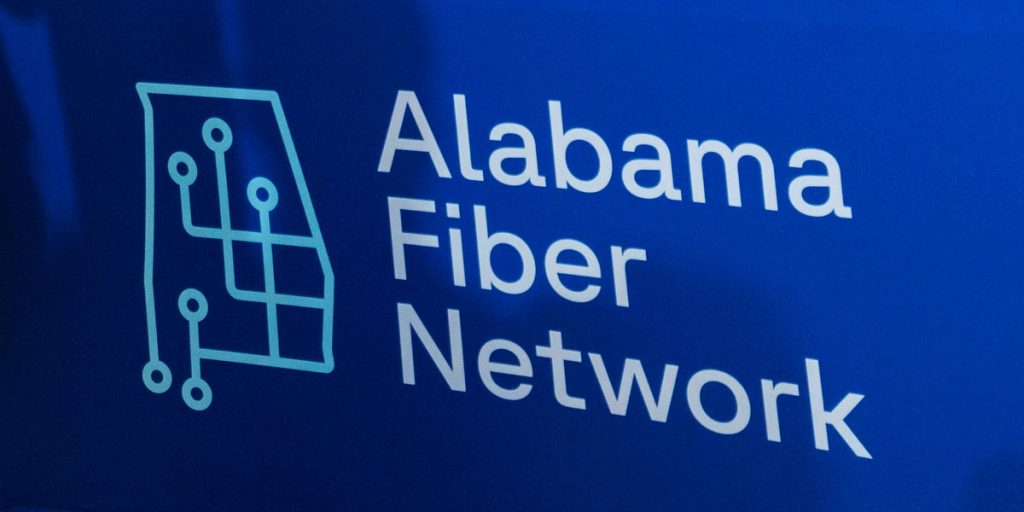An audit report from Opelika shows that the city’s municipal broadband network is a big money loser, dragging down the city’s otherwise healthy finances.
John Boles, a local accountant who completed the audit for the City of Opelika, told the Opelika-Auburn News that the telecommunications fund, OPS One, has a negative balance of $13.4 million and “is the only major fund that has a deficit position.”
Overall, the city’s general fund showed a positive balance of $59.4 million for fiscal year 2017.
Additional debt also comes from the utilities division of Opelika Power Services subsidizing the internet component of OPS. OPS One has received $7.4 million from the utilities division and has been authorized by the city to borrow up to $13.2 million at an initial interest rate of 2.62 percent with the tab due by 2038.
City leaders said OPS One’s total negative position is now $20.9 million, counting the loan from utilities. The interest payments total nearly $500,000 a year. They initially said OPS One would pay for itself in five years, with Opelika Mayor Gary Fuller telling Watchdog.org in 2016, “[W]e are on pace with our five-year plan to be at break even.”
In a letter to Opelika-Auburn News last week, Mayor Fuller adjusted the timeline when he wrote that “the city anticipated that it would incur substantial losses during the first five years of operation.”
Now, Opelika has pushed its break-even projection back to eight to 10 years. Derek Lee, director of OPS, told Opelika Auburn News that OPS One borrowed additional money to get its business up and running “and that created a deficit net position.”
“Once OPS One breaks even and then begins to generate more revenues than expenses, the extra revenues will be used to repay the amounts borrowed and will improve the net position,” he said. “How quickly that happens depends on the residents of Opelika.”
He said the city broadband network now has about 3,700 customers. It had about 2,700 in 2016. Lee said in April that “our competitors have been very aggressive.”
In a post debunking a Harvard study that claims municipal broadband offers much lower rates than private providers, the nonpartisan Information Technology & Innovation Foundation (ITIF) noted that some internet service providers have lowered rates as competition from city internet networks ramped up. But that doesn’t mean the group, which has received plenty of praise from Democrats like California U.S. Rep. Anna Eshoo, who is a big advocate of municipal broadband, is for government-built networks.
Doug Brake, the foundation’s director of broadband and spectrum policy, said, “We at ITIF believe that muni broadband should generally be avoided: Private broadband, coupled with regulatory oversight, provides much better incentives for efficient operation and long-term innovation.”
Yellowhammer News previously reported in 2016 that OPS One’s famous gig service (meaning subscribers could get download and upload speeds of one gigabit per second) had just one subscriber at that time, and its second-tier service of 300 megabits per second had no subscribers.
T. Randolph Beard, an economics professor at Auburn University who has been critical of government-broadband projects like OPS One, said such efforts can scare private providers from entering the market or expanding their own services, leaving taxpayers or ratepayers on the hook depending on the success or failure of city internet.
“It’s a kind of ironic self-fulfilling prophecy,” he said.
Studies have shown successes are few and far between, and there are horror stories of projects like iProvo in Utah or OptiNet in Virginia that resulted in taxpayers taking it on the chin.
The University of Pennsylvania released a study in 2017 that found 11 of 20 municipal broadband projects examined generated negative cash flow, and only of two of the 20 were expected to make enough money to pay off the debts they had incurred within the estimated 30-to-40 year life of a broadband network.
Lead researcher Christopher Yoo pointed out that his team could only examine those 20 because the 68 other municipal broadband networks they identified didn’t report the finances of their internet divisions separately from their power divisions.
“Many cities managing these projects have faced defaults, reductions in bond ratings, and ongoing liability, not to mention the toll that troubled municipal broadband ventures can take on city leaders in terms of personal turmoil and distraction from other matters important to citizens,” said that report.
Johnny Kampis is an investigative reporter for the Taxpayers Protection Alliance Foundation













